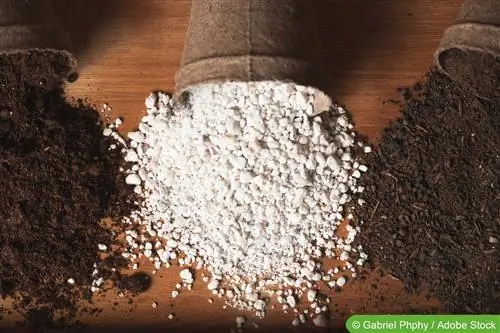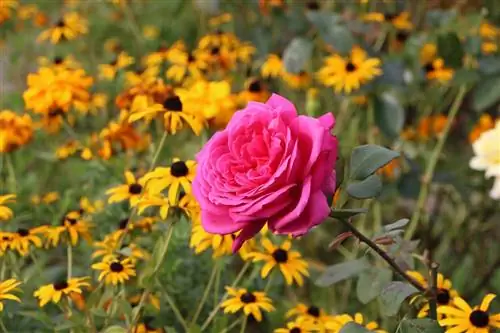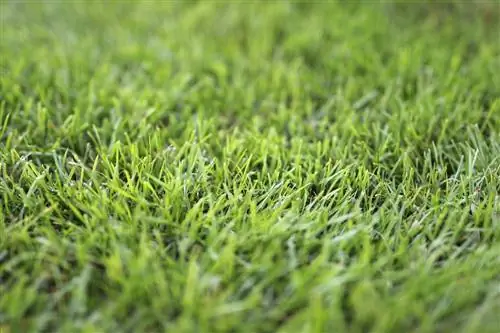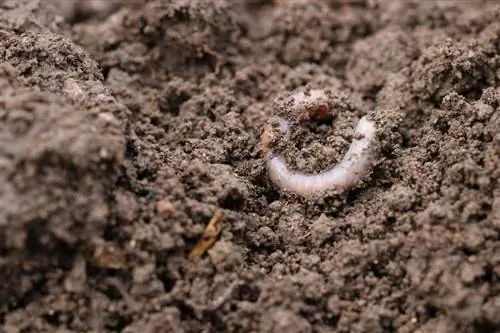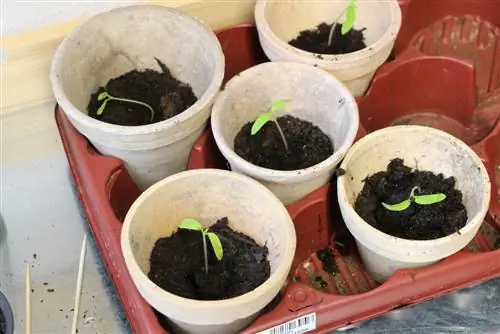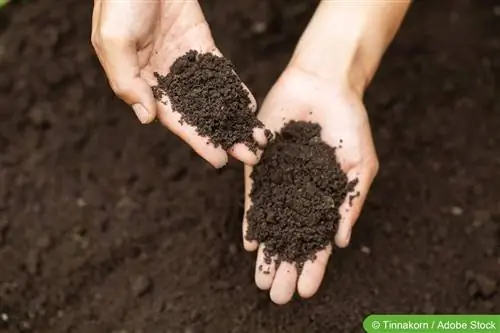- Author admin caroline@plants-knowledge.com.
- Public 2023-12-17 03:39.
- Last modified 2025-01-24 12:45.
Environmentally conscious people are becoming more and more numerous, which is why the search for substances that can perform the functions of peat in potting soil is also increasing. One of these substances is definitely perlite, which can magically transform your garden soil:
What is Perlite
Perlite or English perlite is volcanic glass, so-called obsidian. This glass was chemically and physically transformed in the course of its creation process; geoscientists classify it as a rock. Initially the obsidian is very dense and hard, over time it is broken down into small glass balls or shards of glass through small cracks. If water enters along the cracks, devitrification is initiated. The irregular (amorphous) crystal structure of the glass transforms into barely noticeable small crystals of quartz, feldspar and cristobalite. The result of the transformation is a loose rock with the typical structure of perlite.
An eternally new raw material
Every volcanic activity produces supplies of pearlite, so the rock can be seen as an inexhaustible raw material. The products generated from perlite can usually be returned to nature without any detours, e.g. B. through use in horticulture, see below.
Structure and traditional use
Perlite has a high density in its raw state, which is only significantly changed when heated to up to 1000 degrees: The perlite then expands to fifteen to twenty times its original volume. Both raw perlite and expanded perlite have long been used for a variety of purposes in various industries, as thermal insulation and filter media, as an additive and for insulation purposes and for many other purposes.
Properties of perlite in the garden
Swelled perlite was discovered for gardening some time ago. Perlite can be used in gardening and agriculture and on compost for soil improvement, aeration and moisture regulation. The following properties ensure this:
- Perlite has a pore volume of 95 percent by volume, which creates an excellently aerated substrate for every plant root.
- The grains have an excellent water storage capacity, between 28 and 50 percent depending on their size.
- Perlite can absorb moisture very quickly, it is also s alt-free, nutrient-free and has a pH value in the neutral range.
- And it is also light, with a dry weight of only 90 kg per cubic meter, it can also be easily transported in smaller quantities by hobby gardeners.
Uses of perlite in the garden
This makes the potting soil mixed with perlite a perfect breeding ground for all plants that value well-ventilated substrate and use it for optimal root growth. These are e.g. E.g. roses and gerberas, poinsettia and anthurium. Even young grass roots can anchor themselves excellently in a perlite-filled soil.
Perlite also helps to improve the soil in problematic locations: A wet soil with a lack of aeration is better structured by adding perlite and therefore more permeable to air and water; plant roots can develop well in such loosened soil. Soils that are too light or too sandy can store water much better after adding perlite, making it much easier to maintain a balanced fluid balance in the soil.
Perlite can be added to any potting soil or sowing soil; many gardeners even use perlite unmixed as a sterile sowing substrate or root their cuttings in pure perlite. They appreciate the rock structure of perlite, which cannot mold.
In commercial horticulture, perlite is even used as a pure substrate for growing vegetables and cut flowers, so the plants are cultivated in pure perlite and supplied with water and nutrients in a controlled manner using a fertilizer computer. For the hobby gardener, this form of cultivation can be used for hydroponics; perlite with a grain size of 2 to 6 mm is used, which is absolutely free of fine particles and dust. Anthuriums and gerberas, roses and orchids can be cultivated very well in this way.
Perlite is available in a variety of grain sizes, the coarser grain sizes are added to loosen the soil, finer grain sizes can be added to potting soil or used to propagate cuttings.
Buy Perlite
Perlite has a grain size between 0 and 6 mm and costs 0.95 euros per liter, 0.75 euros for 10 liters or more. Under the brand name Isoself, pure perlite without additives is sold in almost every hardware store and only costs 10 to 15 euros per 100 liters. However, other perlite products that are intended for building purposes should not be used uncritically: If they are not expressly designated as suitable for plants, they may have been structurally refined with substances that may be harmful to plants. Before using it, you should research the ingredients carefully. So there is e.g. B. Staubex and Nivoperl (Perlite with paraffin coating) and Bituperl (Perlite with bitumen coating).
If you still have an old bag of perlite in the shed and can no longer check the suitability of the plant because there is no label, the “cress test” might help: simply sow cress on the pure substrate; if it grows, others will too Plants grow in this substrate.
Other substances that are no longer only used in construction or technical applications, but also as admixtures to soil to improve the soil, include vermiculite, zeolite and wall sand.

